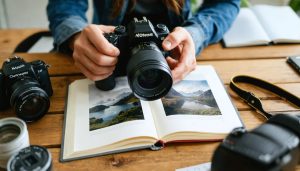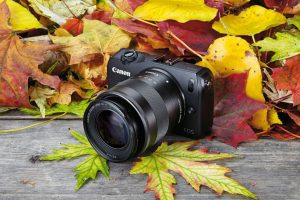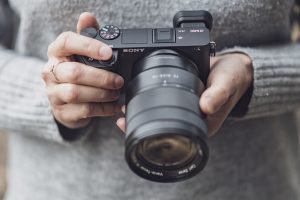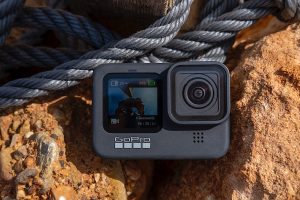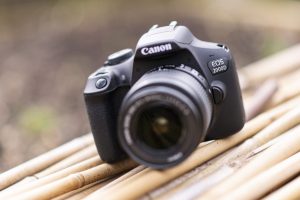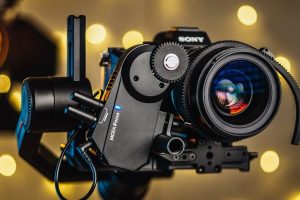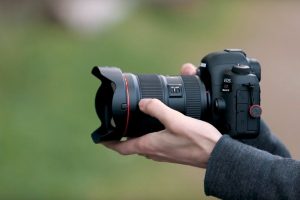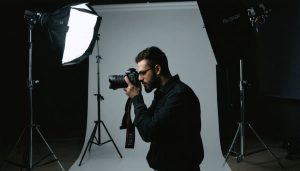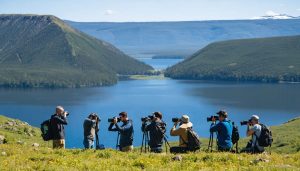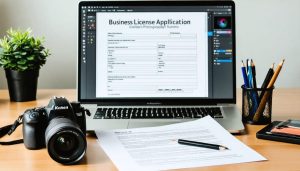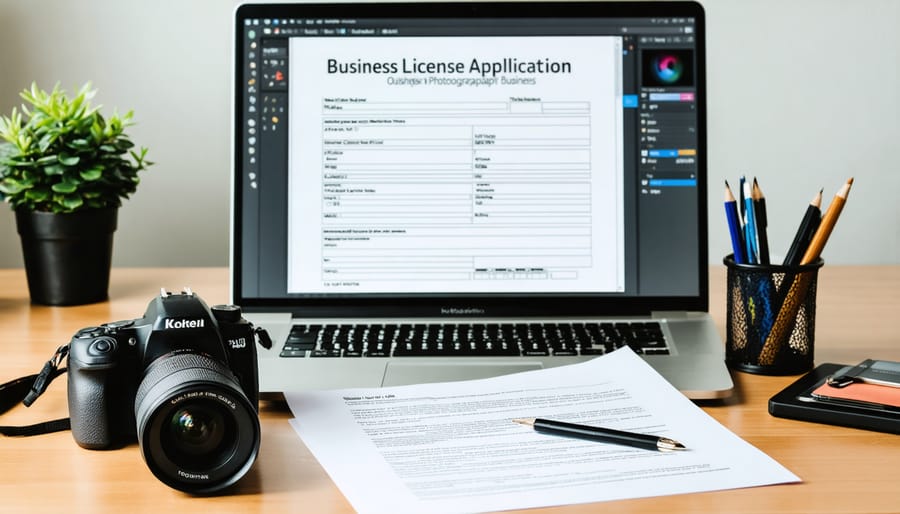
Launching a photography business requires careful attention to licensing requirements – and yes, most photographers need a business license to operate legally. Operating without proper licensing can result in fines, legal issues, and damage to your professional reputation, even if you’re running one of today’s popular photography business models. The specific requirements vary by location, but generally, any photographer earning income from their work needs at least a basic business license, sales tax permit, and potentially additional permits for specific types of photography (like commercial shoots in public spaces). Whether you’re shooting weddings on weekends or running a full-time portrait studio, understanding and complying with local licensing requirements protects your business and establishes you as a legitimate professional in your market. This guide will walk you through exactly what licenses you need, where to get them, and how to ensure your photography business operates within legal requirements.
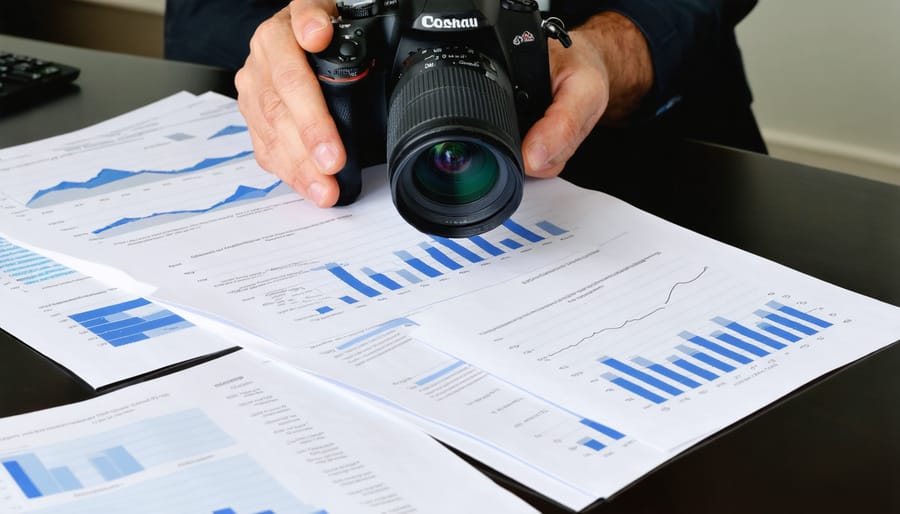
When You Need a Business License for Photography
Full-Time vs. Part-Time Photography
Whether you need a business license often depends on whether you’re operating as a full-time professional or a part-time photographer. Full-time photographers who rely on their craft as their primary source of income typically need proper licensing, as they’re more likely to meet income thresholds that trigger licensing requirements. As you grow your photography business, your volume of work and revenue will influence your licensing obligations.
Part-time photographers might have more flexibility, especially if they’re earning below certain income thresholds. However, don’t assume that working part-time automatically exempts you from licensing requirements. Many jurisdictions focus on the nature of the business rather than hours worked. For instance, if you regularly shoot weddings on weekends or maintain a consistent client base, you may still need proper licensing despite not working full-time hours.
Consider your annual revenue, frequency of jobs, and business structure when determining your licensing needs. When in doubt, it’s better to operate with proper licensing than risk penalties for non-compliance, regardless of your work schedule.
Home-Based vs. Studio Photography
The requirements for photography business licenses can vary significantly depending on whether you operate from home or a commercial studio. Home-based photographers typically need to check their local zoning laws and obtain a home occupation permit before starting their business. Some neighborhoods have restrictions on commercial activities, including client visits and parking arrangements, which could affect your ability to operate from home.
Studio photographers, on the other hand, usually face more stringent licensing requirements. When operating from a commercial space, you’ll likely need additional permits such as a certificate of occupancy, fire safety certification, and possibly signage permits. You’ll also need to ensure your studio space complies with local building codes and accessibility requirements.
Both home-based and studio photographers should consider liability insurance, but studio owners often need more comprehensive coverage due to increased foot traffic and equipment risks. Additionally, if you plan to have employees, your licensing requirements will be more extensive regardless of location.
Some cities offer simplified licensing processes for home-based businesses, making it an attractive option for photographers just starting out. However, as your business grows, transitioning to a studio space might become necessary, requiring you to update or obtain new licenses. Always check with your local business development office to understand the specific requirements for your chosen location, as they can vary significantly between municipalities.
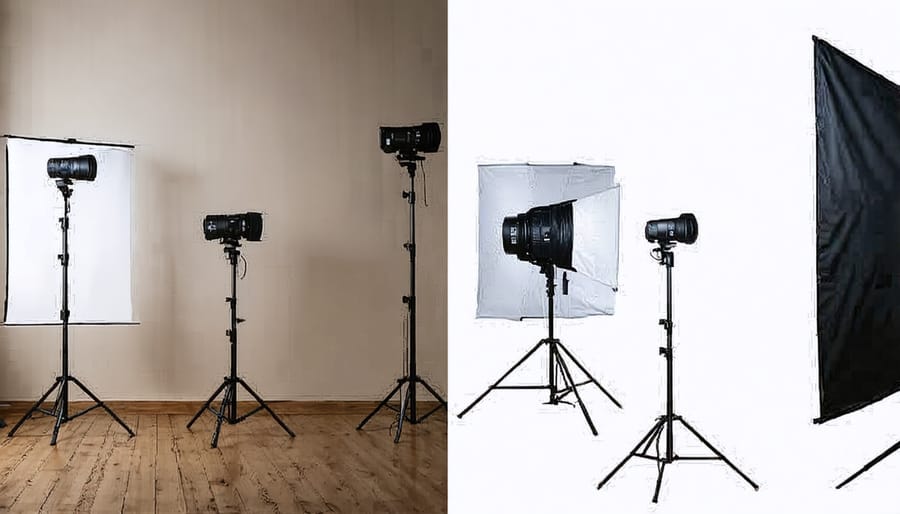
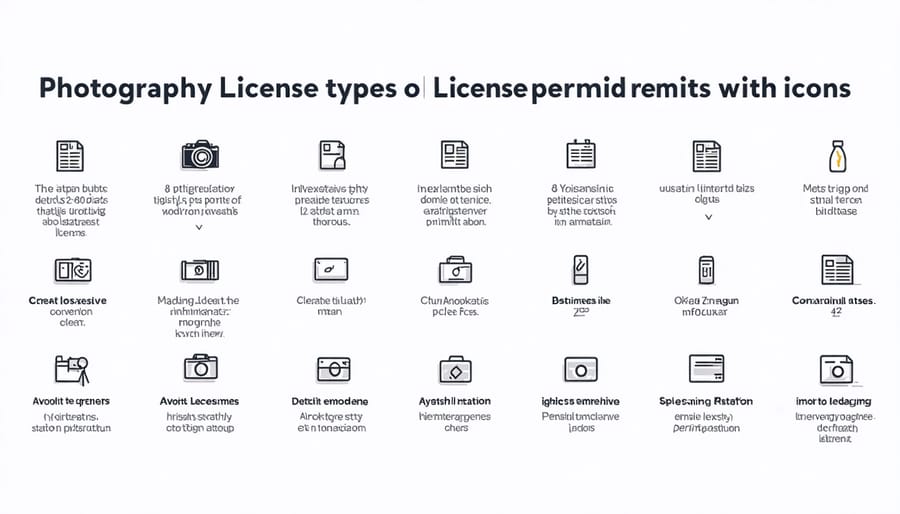
Types of Photography Business Licenses
General Business License
A general business license, often called a business permit or operating license, is typically the first licensing requirement you’ll need to address when starting your photography business. This foundational document essentially gives you legal permission to conduct business within your city or county.
The application process usually involves visiting your local city hall or county clerk’s office, though many jurisdictions now offer online applications. You’ll need to provide basic information about your business, including your business name, structure (such as sole proprietorship or LLC), and physical location. Expect to pay a fee that typically ranges from $50 to $400, depending on your location.
Most general business licenses need to be renewed annually or bi-annually, and it’s crucial to keep track of these renewal dates. The requirements can vary significantly between locations – for instance, some cities might require additional permits if you’re operating a home-based studio or displaying business signage.
For mobile photographers who work across different cities or counties, you may need multiple licenses. It’s always best to check with your local business development office or chamber of commerce for specific requirements in your area. They can provide detailed guidance on exactly what you need to operate legally and avoid potential fines or penalties.
Remember that while obtaining a general business license might seem like a bureaucratic hurdle, it’s an essential step in establishing your legitimate photography business and protecting your professional interests.
Special Event Permits
Beyond your standard business license, certain photography scenarios require special event permits, particularly when shooting in public spaces or unique locations. Wedding photographers often need specific permits when working in popular venues like parks, beaches, or historical sites. These permits typically range from $50 to $500, depending on the location and duration of the shoot.
For commercial photography in national parks, you’ll need to obtain a Commercial Use Authorization (CUA) permit, which can cost between $100 and $300 annually. City parks and public spaces may require day-use permits, especially for professional shoots involving props, lighting equipment, or large groups.
Many municipalities have specific regulations for photography during public events or in crowded areas. For instance, street photography during festivals or parades might require an event-specific permit. Some cities also mandate permits for drone photography, particularly in urban areas or near sensitive locations.
Popular tourist destinations and landmarks often have their own permitting systems. The Empire State Building, for example, requires advance permission for professional photography, while many botanical gardens and museums have special rates and requirements for commercial shoots.
Remember to research and secure these permits well in advance of your shoot, as processing times can vary from a few days to several weeks. Keep copies of all permits with you during shoots to avoid any potential issues with venue management or local authorities.
State-Specific Requirements
Business licensing requirements for photographers vary significantly from state to state and even between cities and counties within the same state. In California, for instance, photographers typically need both a state business license and a local business permit, while in Texas, requirements are often more relaxed at the state level but may be stricter in major cities like Austin or Dallas.
Many states require home-based photography businesses to obtain specific home occupation permits. For example, New York photographers working from home need a Home Occupation Permit in addition to their basic business license. Similarly, Florida photographers must register with the state’s Department of Revenue, regardless of their business location.
Local regulations can be particularly detailed. In Chicago, professional photographers need a Limited Business License, while Seattle requires a city business license for any photography work generating more than $2,000 annually. Some cities also have special event photography permits, which are crucial for wedding and event photographers working in public spaces or historic venues.
Rural areas often have fewer requirements than urban centers, but don’t assume you can operate without any licenses. Even in smaller communities, basic business registration is typically mandatory. States like Montana and Wyoming, despite their rural nature, still require photographers to register their businesses and obtain necessary tax permits.
The best approach is to check with your state’s Secretary of State office and local city hall for specific requirements. Many jurisdictions now offer online portals where you can search for and apply for necessary permits. Remember that requirements can change, so it’s wise to review your licensing status annually and ensure you’re compliant with any new regulations.
Consider these common state-level requirements:
– Business registration
– Sales tax permits
– Professional licenses (in some states)
– Home occupation permits
– Special event permits
– Vendor licenses for selling prints or other products
Additional Legal Considerations
Insurance Requirements
Insurance is a crucial aspect of running a professional photography business, protecting both you and your clients. Most photography businesses should consider several key types of insurance coverage.
Professional liability insurance, also known as errors and omissions (E&O) insurance, is essential as it protects you if a client claims you failed to deliver promised services or made mistakes in your work. For instance, if memory cards fail and you lose wedding photos, this coverage can help manage potential legal claims.
General liability insurance is another must-have, covering accidents or injuries that might occur during photo shoots. If a client trips over your lighting equipment or you accidentally damage property while on location, this insurance has you covered.
Equipment insurance is particularly important for photographers, as camera gear is both expensive and portable. This coverage protects your equipment against theft, damage, or loss, whether you’re shooting in your studio or on location.
If you operate a studio or meet clients in a dedicated space, you’ll need commercial property insurance. Some photographers also opt for business interruption insurance, which helps cover lost income if you can’t work due to covered events like natural disasters or equipment failure.
Many clients, especially corporate ones or wedding venues, may require proof of insurance before working with you. While insurance adds to your operating costs, it’s a vital investment in your business’s long-term security and professional credibility.
Tax Registration
Tax registration is a crucial aspect of managing business finances for your photography business. Most photographers need to register for tax purposes, even if they’re operating part-time or from home. Start by obtaining an Employer Identification Number (EIN) from the IRS, which serves as your business’s tax ID number and is essential for filing federal taxes.
You’ll also need to register for state and local taxes, which typically include sales tax and self-employment tax. As a photographer, you’ll likely need to collect sales tax on physical products like prints and albums, though requirements for digital files and services vary by state. Keep in mind that some states require you to collect sales tax even if you’re operating as a sole proprietor.
Consider working with a tax professional who understands creative businesses, especially when you’re just starting. They can help you navigate deductions specific to photography businesses, such as equipment depreciation, studio expenses, and travel costs for on-location shoots.
Remember to maintain separate business and personal accounts, and keep detailed records of all income and expenses. Set aside approximately 25-30% of your earnings for taxes, as self-employed photographers often need to make quarterly estimated tax payments to avoid penalties. This proactive approach to tax management will help ensure your photography business stays compliant and financially healthy.
Starting a photography business legally requires careful attention to licensing requirements, which vary significantly by location and business type. As we’ve explored, while some photographers may operate without a license for casual work, obtaining proper business licenses is crucial for long-term success and legal compliance. Remember to research your local requirements, consider additional permits for specific venues or types of photography, and maintain proper insurance coverage.
Take the next step by contacting your local business authority to understand exact requirements, consulting with a legal professional about your specific situation, and developing a solid business plan. Consider working with experts in financial planning for photographers to ensure your business structure aligns with your goals. Keep detailed records of all licenses, permits, and insurance documents, and set calendar reminders for renewals.
By following proper licensing procedures and maintaining compliance, you’ll build a strong foundation for your photography business while protecting yourself and your clients. Remember, investing time in proper business setup now will save you potential headaches and legal issues down the road.




